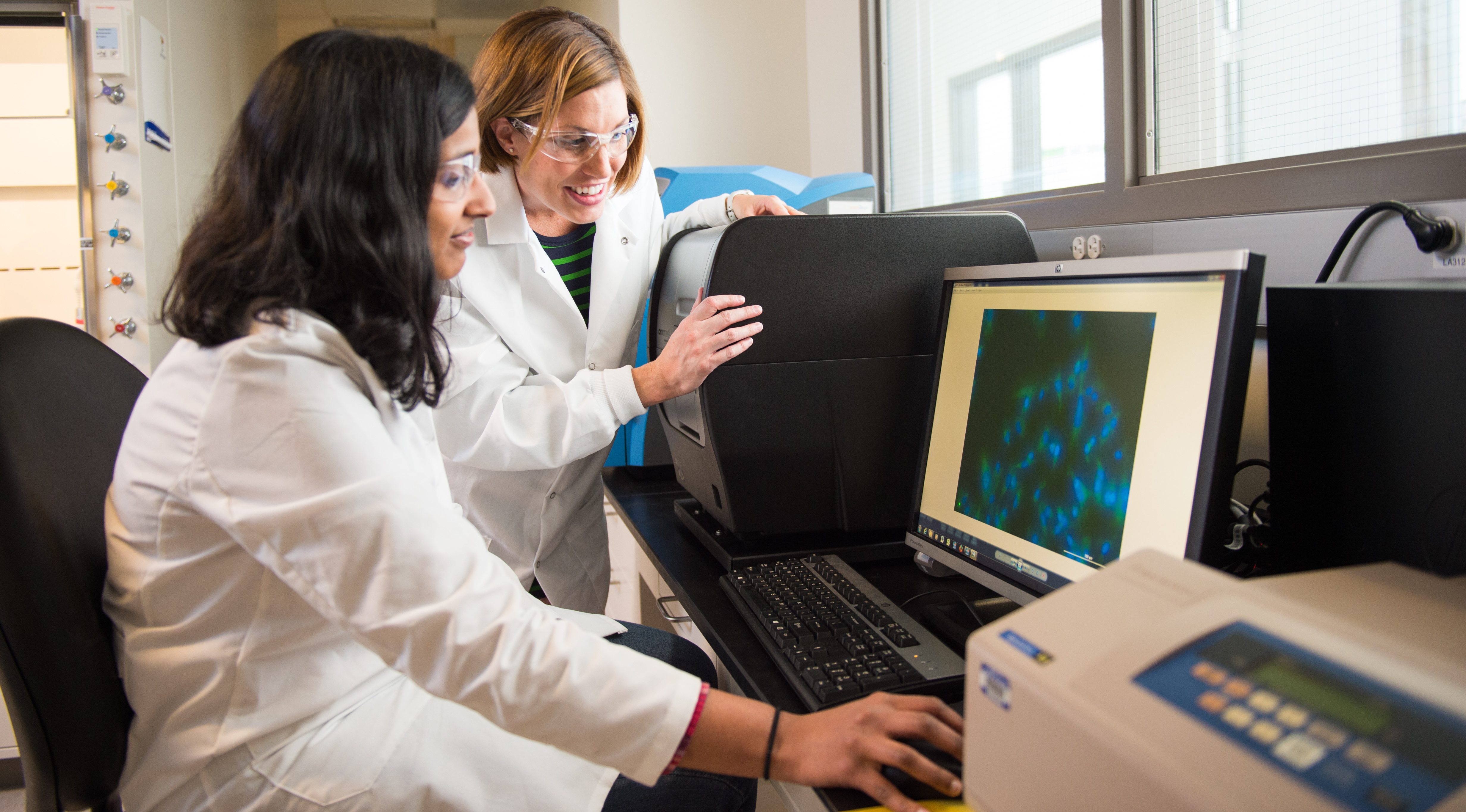Dr. Amanda Garner Earns Catalyst Research Award

Amanda Garner, PhD, Assistant Professor of Medicinal Chemistry, had been selected for the Dr. Ralph and Marian Falk Medical Research Trust Catalyst Award. The program provides one year of seed funding to support high-risk, high-reward projects that address critical scientific and therapeutic roadblocks within the Program’s principal areas of focus. Dr. Garner will receive $300,000 over the next year in support of her research on Leveraging the microRNA Interactome for Cancer Drug Discovery.
RNA plays a key role in gene expression by serving as an intermediary between DNA and protein; however, RNA can play additional cellular roles, and a class of small non-coding RNAs called microRNAs have emerged as important regulators in the translation of RNA into protein. In cancer, microRNAs that suppress tumorigenesis are frequently lost, leading to aberrant cellular growth and proliferation and cancer development. Despite this connection, drug discovery efforts in this area have lagged due to the challenge in identifying useful drug leads and approaches for targeting RNA. Using new high-throughput screening technology developed in the Garner laboratory for detecting RNA-small molecule drug interactions, the team will explore a new hypothesis for overcoming microRNA loss in cancer, namely targeting the interaction between a microRNA and its protein regulator (microRNA-binding protein). As a second goal, Dr. Garner’s group will develop a methodology to discover new druggable microRNA-focused targets based on their hypothesis.
“To overcome these challenges and provide a druggable and transformative solution for restoring tumor suppressor microRNA levels and conquering cancer, we propose to target microRNA−microRNA binding protein interactions,” says Dr. Garner. “Our overall goal is to discover and develop small molecule-based inhibitors of these interactions to prohibit the degradation of specific tumor suppressor microRNAs, thus providing the basis for next-generation microRNA-targeted therapeutics for cancer treatment. These proposed investigations are based on the hypothesis that regulatory microRNA binding proteins specific for select microRNAs have been evolved as a quality control mechanism for controlling mature microRNA levels, and this network is hijacked in cancer.”
If successful, these studies will catalyze the development of new therapeutics for the treatment of cancer, in addition to the identification of new molecular targets for future drug discovery efforts.



Amanda Garner received her Ph.D. in Chemistry from the University of Pittsburgh and completed NIH-funded postdoctoral studies at The Scripps Research Institute. She began her independent career in 2013 in the Department of Medicinal Chemistry at the University of Michigan. Her laboratory is focused on the development of novel high-throughput screening technologies for the identification of chemical probes with an overall goal of validating new therapeutic targets in cancer, namely microRNAs and protein-protein interactions involved in mRNA translation initiation.



